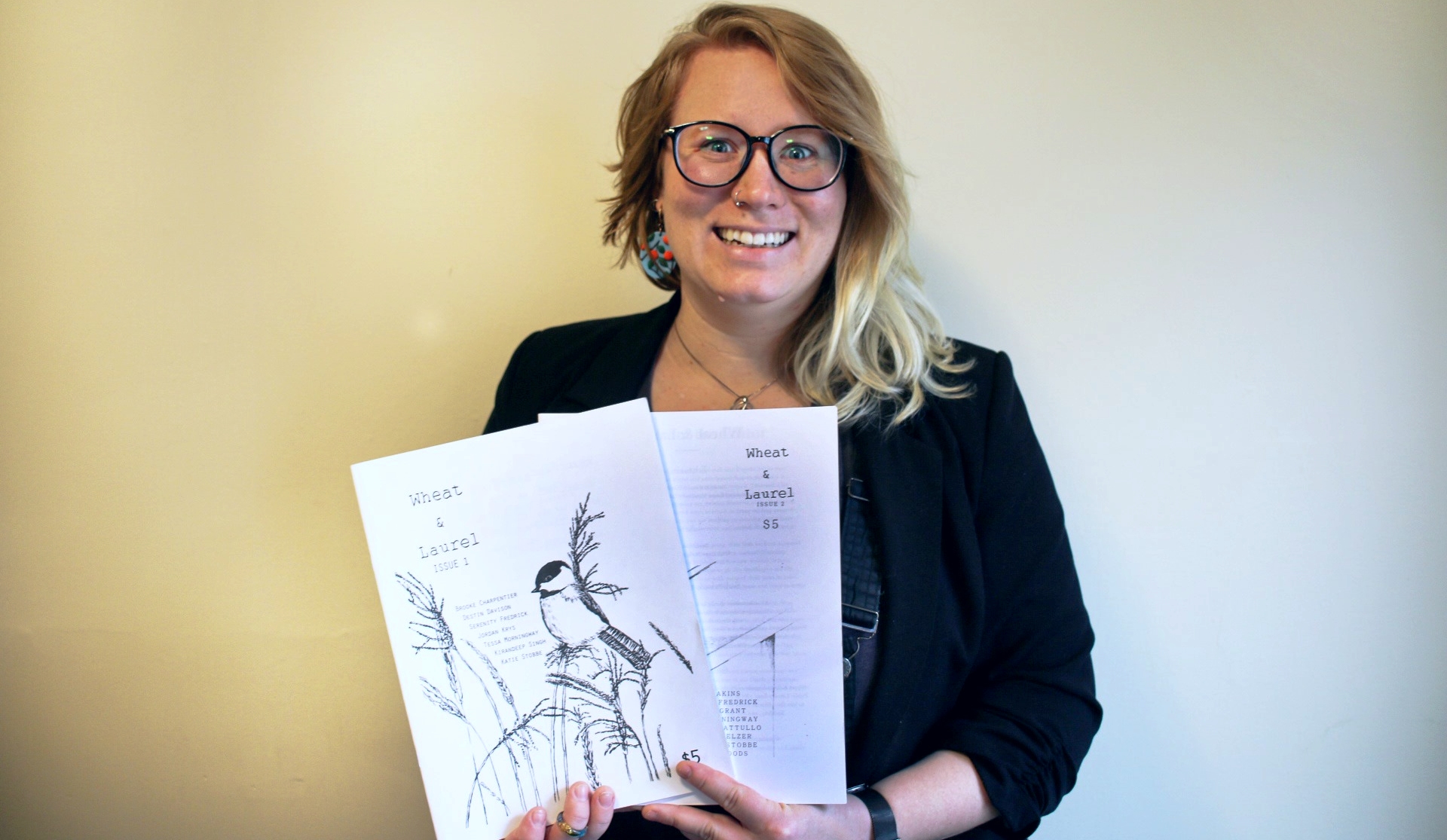Amielle Christopherson loved to read books as a kid, opening her world to new places and people. But growing up in small-town Saskatchewan, there wasn’t a lot out there for a shy youngster with literary tastes.
It wasn’t until she attended Sage Hill’s Teen Writing Experience, a writer’s camp for rural youth, that Christopherson felt like she belonged.
“Living in a rural community, there weren’t necessarily the classes in school or other resources available that larger population centres have. So it was very liberating to be around other teens who were also nerdy in the way I was, and who understood who I was without having to explain why I loved books and writing and all the magic that contains.”
Even after she left home and moved through different jobs, working as an au pair in Europe and a newspaper reporter in rural Alberta before eventually enrolling as a business student at the University of Alberta’s Augustana Campus in Camrose, she never forgot those happy times connecting with like-minded teens.
So when she was approached by one of her professors in 2018 with a grant application for rural development, she knew just what to do with it. Though the grant didn’t happen, Christopherson’s idea did: a literary journal for rural teens called Wheat & Laurel.
Christopherson, who graduates from the U of A Nov. 20 with a bachelor of management, felt empowered by her experience at Augustana Campus to create and launch her dream project.
“I’ve been blessed with tapping into Augustana. I was able to talk about my idea with professors and others in the campus and Camrose community. Augustana has this very supportive community with creative aspects—how do we make this happen, how do we find a way to do this? If you are willing to get involved, Augustana Campus rewards that substantially. It’s a very nurturing community.”
Boosted by the encouragement, Christopherson launched Wheat & Laurel in 2018, with fellow Augustana students designing both the logo and the cover art for the debut issue.
The online journal, which has since published two issues, is a gathering place where young rural writers can publish their work and support one another, Christopherson said.
“If you are someone who doesn’t fit the norm in what can be a tight-knit community, it can feel lonely, so I hope Wheat & Laurel can create virtual bridges for young writers who understand that part of who they are.”
The publication also serves as a free resource for rural communities, she noted. “Rather than putting it on communities that don’t have the funding, their youth still have access to this.”
Edited by Christopherson, her partner Callum Wilson and Augustana English instructor Craig Peterson, Wheat & Laurel invites submissions of poetry, short stories, even serialized novels, from teens aged 11 to 19 living in rural Alberta and Saskatchewan. “It’s open to whatever they want to write about,” she said, noting transgender teens have also submitted work.
The budding writers get advice on how to improve their creations, and the material is published once it’s deemed ready for reading based on the author’s age and ability. Each accepted submission earns the writer a modest fee, subsidized by a $5 cost to readers per issue.
“This gives some confidence and self-worth to these writers—it tells them they deserve to get paid for their work.”
Wheat & Laurel also hosts a Facebook page where the writers can connect, and monthly online meeting sessions where they can submit their work for group feedback.
“It strengthens their skills and often gives them a head start in an environment that is usually restricted to academic settings they’d have to pay or travel for. They’re able to learn more about the practice and art of writing,” Christopherson said.
To date, 30 rural teens have connected with Wheat & Laurel, and 24 of them have published in the journal.
“They love it,” she said, adding that young writers are encouraged to reach out through wheatandlaurel@gmail.com to learn more about the journal. “Some are nervous about sharing their work, but after a session with their peers, they’re eager to hear what is said. One of our writers, a 12-year-old girl, told us no one else she knew would be interested in having these kinds of conversations. And one dad said it would never get old seeing his daughter’s name in print.”
She hopes to eventually expand the journal’s reach to Manitoba, but meanwhile, finds her new business degree valuable in finding support for Wheat & Laurel, which relies largely on sales of the journal and donations to survive.
Christopherson was supported in launching the project through several student awards including the Mark Hanson Memorial Award, the K.E.G. Patrige Memorial Award, the University of Alberta Students' Union Award for Outstanding Innovation and the Augustana Leadership Award, and through funding for awards from the Camrose Arts Council, Lamb Ford Sales, Ricoh Canada and Shuman Insurance.
“It helps in knowing where to look for funding for something that’s an arts-based organization, how to approach businesses for sponsorship, even just practical things like how to set up a mission, vision and values.
“In the world right now, having a degree helps open more doors. It’s given me the confidence that I do have the skills and know-how, that my knowledge is legitimate.”
With plans to publish Wheat & Laurel twice yearly, Christopherson is currently taking submissions for a third issue, and hopes it fosters not only young rural talent, but an appreciation for rural writing.
“A lot of our literary voices aren’t from rural places, yet there are interesting stories to be told there. Rural settings are undervalued.”
